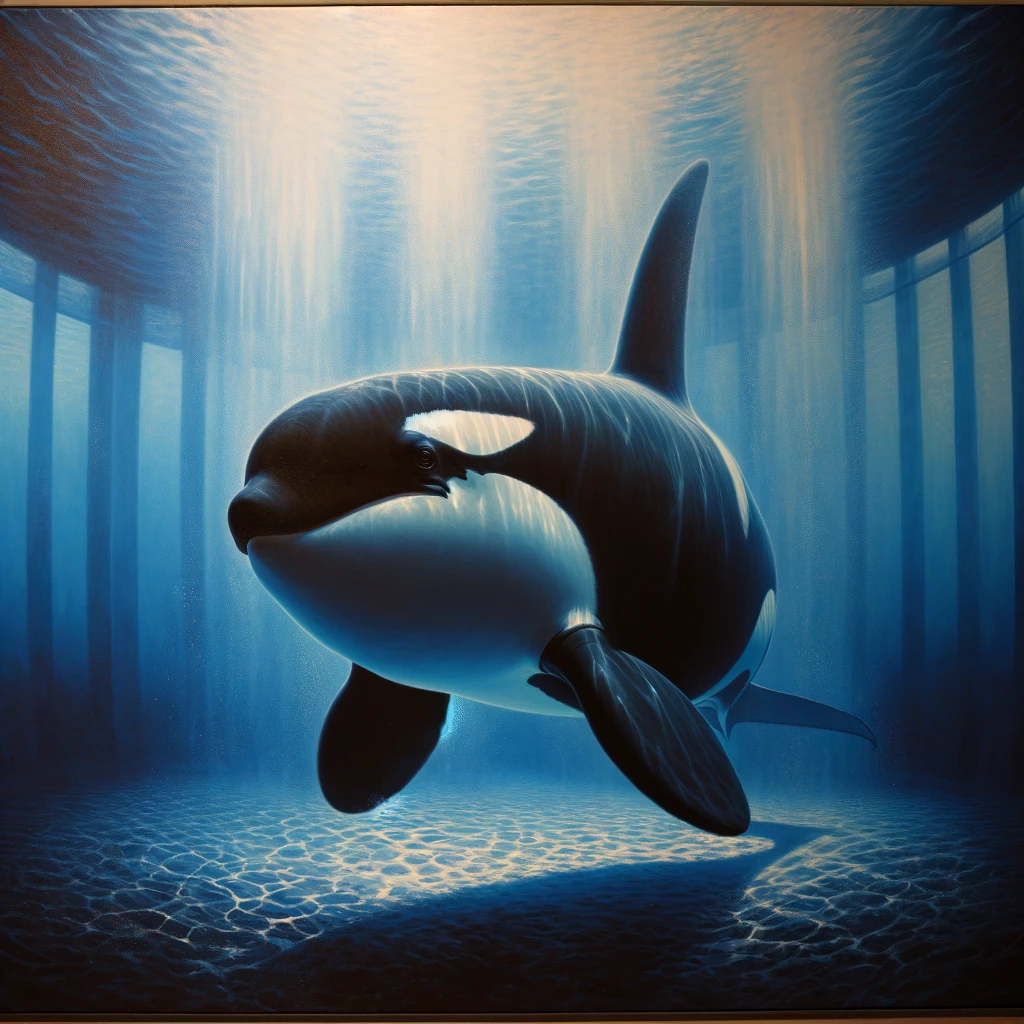Kiska, an orca whale, has become a poignant symbol of the debate over captive marine mammals. Her story, characterized by isolation and controversy, sheds light on the complex ethical and biological issues surrounding the captivity of these intelligent creatures. Residing at Marineland in Canada, Kiska’s solitary existence has sparked international attention and debate.
Early Life and Capture
Kiska was captured in Icelandic waters in the late 1970s, a time when the capture of wild orcas for display and entertainment purposes was more common. Young and adaptable, Kiska was transported to Marineland in Niagara Falls, Ontario. Initially, she was not alone and shared her space with other orcas, including a male named Keiko, who later gained fame as the star of the movie “Free Willy.”
Loss and Solitude
Over the years, Kiska witnessed the departure or death of her tank mates, leaving her the sole orca at Marineland. This isolation is particularly poignant given the highly social nature of orcas, who in the wild live in close-knit family groups known as pods. Orcas are known for their complex social structures, intricate communication, and strong familial bonds, making solitude particularly stressful and unnatural for them.
Health and Welfare Concerns
Kiska’s solitary confinement has raised significant concerns among marine biologists, animal rights activists, and the general public. Experts argue that such isolation can lead to physical and psychological distress, manifesting in behavior such as lethargy, repetitive swimming patterns, and decreased appetite. Reports and footage showing Kiska exhibiting what appeared to be signs of distress and self-harm have further fueled the debate over her well-being.
Legal and Ethical Debate
The plight of Kiska has intensified discussions about the ethics of keeping marine mammals in captivity. Activists and animal welfare organizations have called for her release or transfer to a more socially enriching environment, possibly a seaside sanctuary. However, Marineland has maintained that moving Kiska could be risky to her health given her age and long-term captivity. The situation has also led to legal challenges and changes in legislation concerning captive wildlife in Canada.
Global Impact and Legacy
Kiska’s story has resonated globally, becoming a catalyst for change in how society views the captivity of marine mammals. Her situation has contributed to a broader movement advocating for the rights and welfare of captive animals, leading to changes in public opinion and policy. Many marine parks worldwide are re-evaluating their practices, and some have ceased orca shows or breeding programs in response to growing ethical concerns.

Kiska, often referred to as “the world’s loneliest orca,” symbolizes the complex and often contentious issue of wildlife in captivity. Her story serves as a reminder of the need for ongoing dialogue and action regarding the ethical treatment of these intelligent and social beings. As the world continues to grapple with these issues, Kiska’s legacy will undoubtedly influence the future of marine mammal captivity and conservation.
